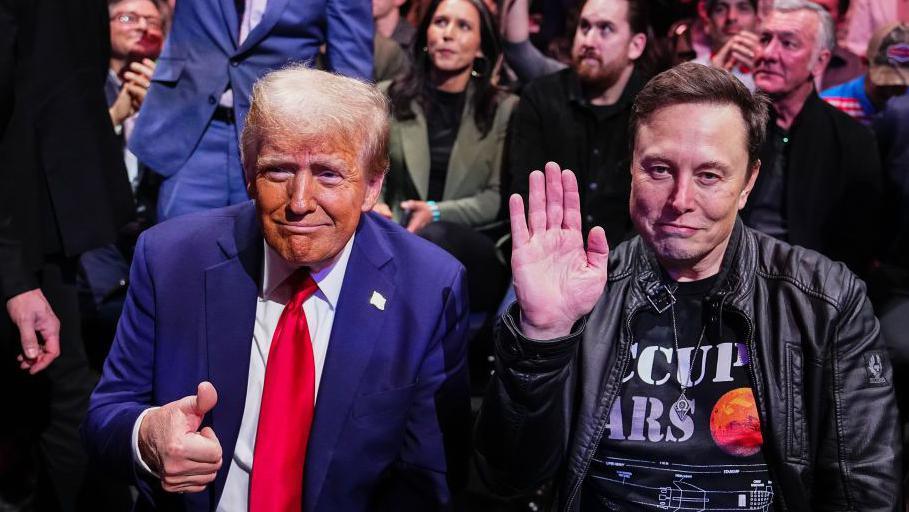Former President Donald Trump remains one of the most polarizing and influential figures in global politics. His recent comments on economic anxieties in the U.S. have not only stirred domestic debate but also sent ripples through foreign elections, underscoring his enduring impact on international affairs. As Trump campaigns for a potential second term, his rhetoric continues to shape political discourse far beyond America’s borders.
Trump’s Economic Messaging Resonates—and Rattles
At campaign rallies and in media appearances, Trump has doubled down on his signature economic populism, warning of decline under the Biden administration and promising a return to “America First” policies. His critiques of inflation, trade deficits, and job losses strike a chord with many voters who feel squeezed by rising costs and economic uncertainty.
However, Trump’s economic pronouncements often carry unintended consequences abroad. His past policies—such as tariffs on allies, threats to withdraw from trade agreements, and skepticism toward multilateral institutions—left a lasting imprint on global markets. Now, as he weighs in on current economic struggles, foreign leaders and candidates are forced to respond, sometimes altering their own political strategies.
Interference or Influence? Trump’s Role in Foreign Elections
Trump’s ability to sway foreign political landscapes is not new. During his presidency, his endorsements (or condemnations) of certain leaders—such as Brazil’s Jair Bolsonaro, Hungary’s Viktor Orbán, and France’s Marine Le Pen—boosted nationalist movements worldwide. Now, as he re-emerges as a dominant force in U.S. politics, his words are again influencing elections abroad.
Case Study 1: Europe’s Right-Wing Surge
In Europe, far-right parties have gained momentum, partly by echoing Trump’s rhetoric on immigration, sovereignty, and economic protectionism. His recent praise for figures like Geert Wilders in the Netherlands and Italy’s Giorgia Meloni has bolstered their credibility among nationalist voters. Conversely, his criticisms of leaders like Germany’s Olaf Scholz or Ukraine’s Volodymyr Zelensky have provided ammunition for their opponents.
Case Study 2: Latin America’s Political Divide
In Latin America, Trump’s attacks on socialism have been weaponized in elections. His vocal support for free-market policies and opposition to leftist leaders like Venezuela’s Nicolás Maduro or Colombia’s Gustavo Petro has sharpened regional divides. In Argentina, libertarian President Javier Milei has openly embraced Trump’s playbook, vowing to dollarize the economy and slash government spending—a direct rebuke to left-wing predecessors.
Case Study 3: Asia’s Trade Tensions
In Asia, Trump’s renewed focus on trade imbalances has put leaders on edge. His past trade wars with China and threats to impose steep tariffs left lasting scars, and his recent remarks suggest he could escalate economic confrontations if reelected. This uncertainty has forced countries like Japan, South Korea, and Vietnam to recalibrate their economic policies in anticipation of another Trump term.
Why Trump’s Words Matter More Than Ever
Unlike traditional former presidents who fade from the global spotlight, Trump commands attention with every statement. His blend of economic nationalism, anti-establishment fervor, and media dominance ensures that his voice carries weight—whether intended or not.
-
Media Amplification: Trump’s knack for dominating news cycles means his economic warnings and foreign policy barbs spread instantly worldwide.
-
Populist Symbiosis: Right-wing leaders align themselves with Trump to energize their bases, while left-wing candidates use him as a foil to rally opposition.
-
Market Jitters: Investors and governments brace for volatility whenever Trump discusses trade wars, NATO funding, or sanctions, knowing his policies could upend global economics.
The Biden Counter-Narrative
President Joe Biden’s team has sought to contrast Trump’s economic record with their own, emphasizing job growth, infrastructure investments, and a return to stable alliances. Yet, persistent inflation and voter pessimism leave room for Trump’s narrative to gain traction. If economic anxieties deepen, his message—and its global repercussions—will only grow louder.
Conclusion: A Preview of 2024’s Global Impact
As the 2024 U.S. election approaches, Trump’s economic rhetoric will continue to reverberate internationally. Foreign elections may increasingly become proxy battles over Trumpism, with candidates either embracing or rejecting his vision. Whether seen as a disruptor or a champion, one thing is clear: Trump’s influence on global politics is far from over.



